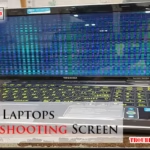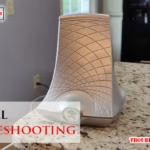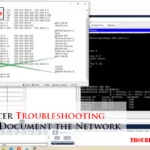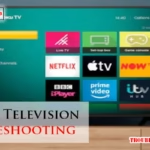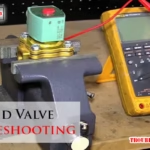Ensure the thermostat is set correctly and check the circuit breaker. Replace filters regularly for optimal performance.Amana Heating and Air Conditioning systems are known for their reliability. Regular maintenance helps avoid common issues. Troubleshooting starts with checking the thermostat and circuit breaker. Dirty filters can cause inefficiency, so replace them frequently. Listen for unusual noises which may indicate mechanical problems.
Inspect ductwork for leaks or blockages. Ensure the outdoor unit is free from debris. Clean coils to maintain airflow. If problems persist, contact a professional for a thorough inspection. Regular check-ups and timely repairs extend the system’s lifespan and improve efficiency.
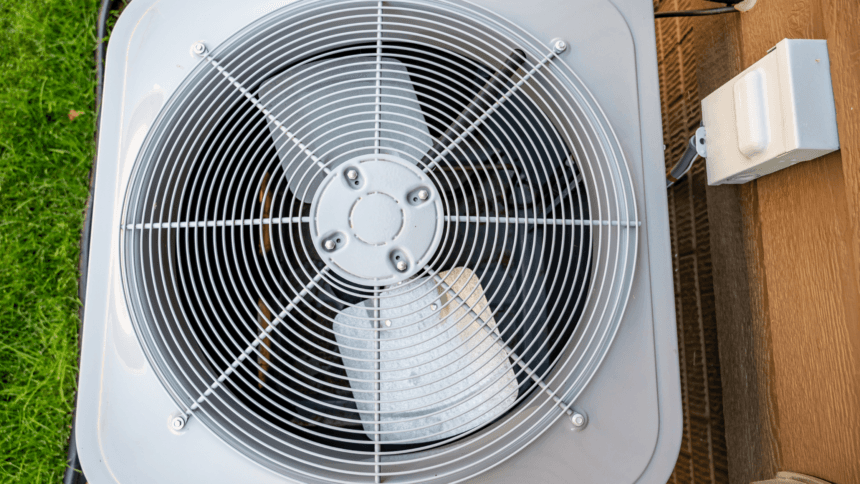
Common Issues
Amana heating and air conditioning systems are reliable. But sometimes, they face issues. Knowing these common problems can help you troubleshoot. Below are some frequent issues users encounter.
No Cooling
No cooling is a common issue with air conditioning units. Here are some possible causes:
- Thermostat Settings: Ensure the thermostat is set to “cool”.
- Dirty Air Filters: Clean or replace dirty filters regularly.
- Low Refrigerant Levels: Check for refrigerant leaks. Refill if necessary.
- Blocked Condenser Unit: Remove any debris around the condenser unit.
| Problem | Solution |
|---|---|
| Thermostat Settings | Set to “cool” mode. |
| Dirty Air Filters | Clean or replace filters. |
| Low Refrigerant Levels | Check for leaks, refill refrigerant. |
| Blocked Condenser Unit | Clear debris from unit. |
No Heating
No heating can be frustrating, especially in winter. Let’s explore common causes:
- Thermostat Settings: Ensure the thermostat is set to “heat”.
- Tripped Circuit Breaker: Check the breaker box. Reset if needed.
- Dirty Air Filters: Replace or clean the filters.
- Ignition Problems: Inspect the ignition system for faults.
- Check thermostat settings.
- Reset the circuit breaker.
- Clean or replace air filters.
- Inspect the ignition system.
Regular maintenance can prevent these issues. Always refer to your user manual for detailed instructions.
Thermostat Problems
One of the most common issues with Amana Heating and Air Conditioning systems is thermostat problems. A malfunctioning thermostat can lead to inefficient heating or cooling. Understanding these issues can help you troubleshoot and resolve them quickly.
Incorrect Settings
Incorrect thermostat settings can cause your system to function improperly. Ensure your thermostat is set to the correct mode (heat or cool). Double-check the temperature settings. They should match your comfort preferences.
| Setting | Recommended Value |
|---|---|
| Heating Mode | 68-72°F |
| Cooling Mode | 72-76°F |
Another common issue is the fan setting. Make sure the fan is set to “auto” instead of “on.” This will ensure the fan only runs when necessary.
Faulty Thermostat
A faulty thermostat can cause erratic system behavior. If your system cycles on and off frequently, check the thermostat. Replace the batteries if needed. If the problem persists, the thermostat might be defective.
To test, set the thermostat to a different temperature. Observe if the system responds accordingly. If not, consider replacing the thermostat.
- Turn off the HVAC system.
- Remove the thermostat cover.
- Check for loose wires or corrosion.
- Replace the thermostat if necessary.
Regularly inspecting your thermostat can prevent many common issues. A well-maintained thermostat ensures your Amana system runs efficiently and keeps your home comfortable.
Airflow Issues
Amana heating and air conditioning systems are reliable. But, you may face some common issues. One of the most frequent problems is airflow issues. This can lead to poor heating or cooling performance. Understanding the causes can help you fix them.
Blocked Vents
Blocked vents can cause significant airflow problems. Make sure all vents are open and unobstructed. Blocked vents can be due to furniture or other objects. Check all rooms and ensure nothing covers the vents. This helps in maintaining proper airflow.
| Problem | Solution |
|---|---|
| Furniture blocking vents | Move furniture away from vents |
| Closed vents | Open all vents |
| Objects covering vents | Remove objects |
Dirty Filters
Dirty filters can restrict airflow. This makes your system work harder. Replace the filters regularly to ensure efficient performance. A good rule is to check them every month. If they look dirty, replace them.
- Check filters monthly
- Replace dirty filters
- Use high-quality filters
Clean filters allow better airflow. This helps your system run efficiently. It also improves air quality in your home.
Refrigerant Leaks
Refrigerant leaks can cause your Amana Heating and Air Conditioning system to lose efficiency. A refrigerant leak can lead to higher energy bills and reduced comfort. Identifying and repairing these leaks promptly is crucial.
Identifying Leaks
To identify refrigerant leaks in your Amana system, follow these steps:
- Check for ice build-up: Ice on the evaporator coil signals a leak.
- Listen for hissing sounds: Hissing can indicate escaping refrigerant.
- Inspect for oily residue: Oily spots on components are leak indicators.
Use a leak detection kit for precise identification. These kits can pinpoint small leaks. Regular maintenance checks help in early detection.
Repair Solutions
Once a refrigerant leak is identified, consider these repair solutions:
- Seal small leaks: Use a sealant to fix minor leaks.
- Replace damaged components: Replace faulty parts like valves or hoses.
- Recharge the refrigerant: After repairing, recharge to the correct level.
Ensure a certified technician handles refrigerant recharging. Proper handling ensures system efficiency and safety.
For extensive leaks, consider system replacement. This ensures long-term reliability and efficiency.
Unusual Noises
Hearing unusual noises from your Amana heating and air conditioning system? These sounds could indicate a problem. Understanding these noises can help you troubleshoot issues early.
Banging Sounds
Banging sounds are often alarming. They may signify a serious issue with your Amana system. These noises might be due to several factors:
- Loose parts inside the unit.
- Debris in the blower assembly.
- A broken motor mount.
Turn off the system immediately if you hear banging. Inspect the unit for visible issues. If you cannot identify the problem, call a professional technician.
Whistling Noises
Whistling noises can be annoying. These sounds often indicate airflow problems. Common causes include:
- Dirty air filters.
- Blocked air vents.
- Leaks in the ductwork.
To fix this, start by checking the air filter. Replace it if it’s dirty. Next, ensure all vents are open and not obstructed. Lastly, examine the ductwork for leaks. Seal any leaks with duct tape.
Regular maintenance can prevent many of these issues. Keep an ear out for unusual noises. Address them promptly to maintain your system’s efficiency.
Electrical Problems
Electrical problems are common with heating and air conditioning systems. These issues can lead to malfunctions. Understanding these problems helps keep your Amana system running smoothly.
Tripped Breakers
A tripped breaker cuts power to your Amana unit. This stops it from working. Follow these steps to check for a tripped breaker:
- Locate your home’s breaker panel.
- Look for a breaker that is in the “off” position.
- Reset the breaker by flipping it to the “on” position.
If the breaker trips again, it may indicate a more serious issue. Contact a professional for help.
Wiring Issues
Wiring issues can cause your Amana system to malfunction. Loose or damaged wires are the main culprits.
- Check for loose connections.
- Inspect wires for damage.
If you find any issues, you may need to replace the wires. This should be done by a professional to ensure safety.
| Problem | Solution |
|---|---|
| Tripped Breakers | Reset the breaker. If it trips again, seek professional help. |
| Wiring Issues | Check for loose or damaged wires. Contact a professional if needed. |
Maintenance Tips
Maintaining your Amana Heating and Air Conditioning system is crucial for its longevity and efficiency. Regular maintenance can prevent costly repairs and ensure your system works at its best. Here are some essential maintenance tips to keep your Amana system in top shape.
Regular Cleaning
Regular cleaning of your Amana system is vital. Dust and debris can build up and affect performance. Follow these steps for effective cleaning:
- Change the air filters every 1-3 months to ensure clean airflow.
- Inspect and clean the evaporator and condenser coils regularly.
- Ensure the drain lines are clear to prevent water damage.
- Keep the outdoor unit free from leaves, grass, and other debris.
Annual Servicing
Annual servicing by a professional technician can help identify potential issues early. This proactive approach can save you from unexpected breakdowns. Here are some key tasks included in annual servicing:
| Task | Details |
|---|---|
| Inspection | Technicians check all system components for wear and tear. |
| Refrigerant Level Check | Ensures the system has the correct amount of refrigerant. |
| Electrical Connections | Inspect and tighten all electrical connections. |
| Thermostat Calibration | Ensure the thermostat is accurate for optimal comfort. |
Following these maintenance tips can help your Amana Heating and Air Conditioning system run efficiently. Regular cleaning and annual servicing are simple steps that can prevent major issues and extend the life of your system.
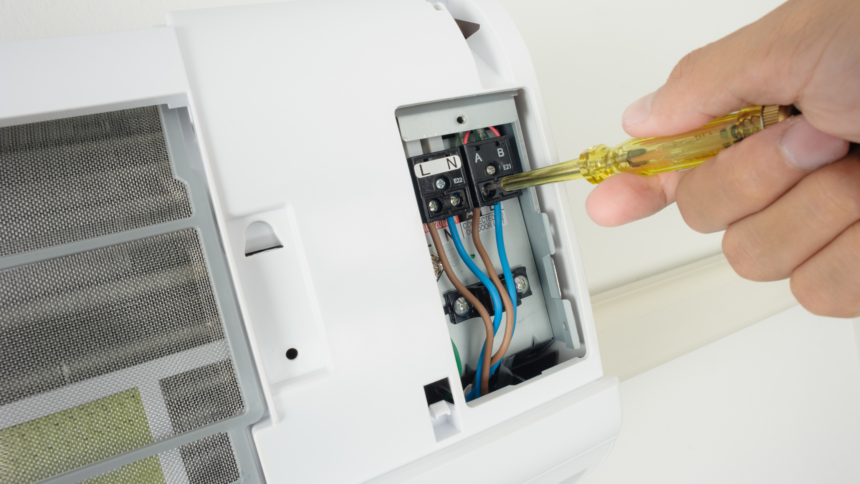
When To Call A Professional
Encountering issues with your Amana heating and air conditioning system can be stressful. While some minor problems can be fixed by following the manual, certain situations require professional help. Knowing when to call an expert is crucial for ensuring your system’s longevity and your safety.
Complex Repairs
Some repairs are too intricate for a DIY approach. If your system has recurring issues, it might need complex troubleshooting. Professionals have the tools and knowledge to diagnose and fix these problems efficiently.
- Electrical Issues: Faulty wiring can cause system failures. A certified technician should handle electrical repairs.
- Refrigerant Leaks: Low refrigerant levels might indicate a leak. Only professionals should recharge the system and fix the leak.
- Component Replacements: Replacing major components like compressors or motors requires expertise.
Safety Concerns
Working with heating and cooling systems can be dangerous. Safety should always be a priority. If you notice any of these signs, call a professional immediately.
| Issue | Why You Need a Professional |
|---|---|
| Strange Noises | Unusual noises can indicate serious internal issues. A professional can identify and fix the source safely. |
| Gas Smell | A gas smell could indicate a leak. This is hazardous and needs immediate professional attention. |
| Frequent Cycling | If the system turns on and off frequently, it could be overheating. A technician can diagnose and resolve the issue. |
Always prioritize safety and efficiency. Calling a professional ensures your Amana system runs smoothly and safely.
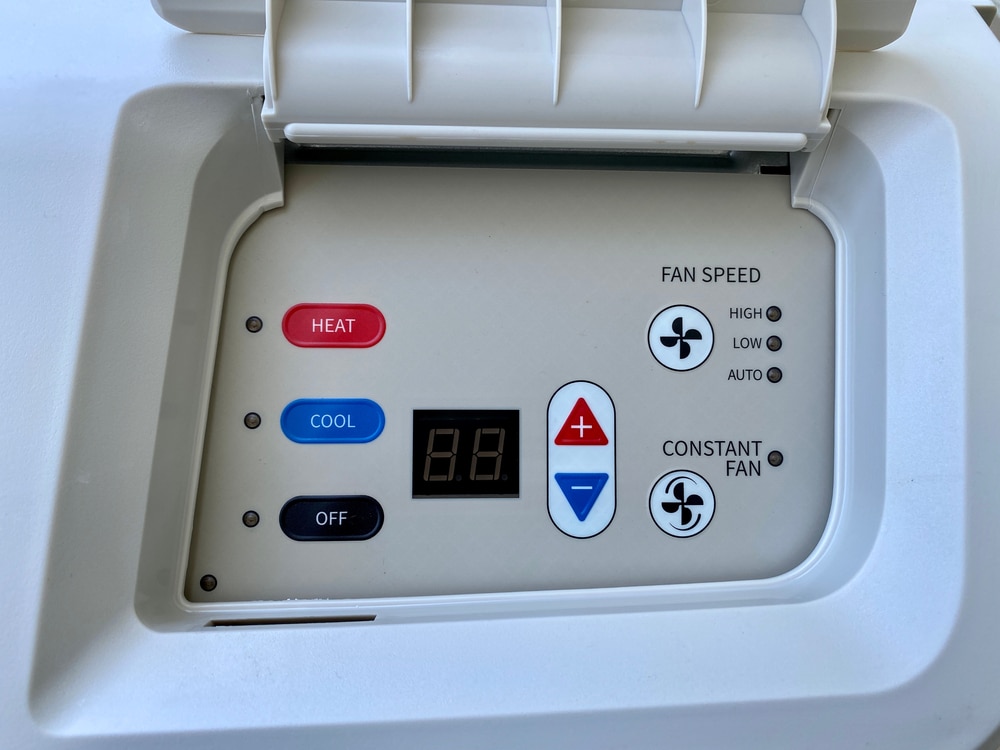
Frequently Asked Questions
How To Reset Amana Air Conditioner?
To reset your Amana air conditioner, turn off the unit, wait 5 minutes, then turn it back on.
Why Is My Amana Ac Not Cooling?
Check the thermostat settings, clean or replace the air filter, and ensure the condenser is not blocked.
What Does Flashing Light On Amana Furnace Mean?
A flashing light indicates an error code. Refer to the user manual to decode the specific issue.
How To Clean Amana Air Conditioner Filter?
Remove the filter, wash it with warm water and mild detergent, let it dry completely, then reinstall it.
Why Is My Amana Furnace Making Noise?
Noises can be due to loose components, dirty burners, or a malfunctioning blower motor. Inspect and tighten parts.
Conclusion
Solving Amana heating and air conditioning issues can improve efficiency and comfort. Regular maintenance prevents common problems. Follow the troubleshooting steps provided to extend your system’s lifespan. Always consult a professional for complex issues. Keep your home comfortable and energy-efficient with proper care and timely interventions.


